12 Things to Make in a Blender for Delicious Results in Double-Quick Time – These are My Go-To Recipes as Busy Kitchen Editor
It's not all about smoothies – from sauces and soups to salad dressings, there are so many ways to use your blender
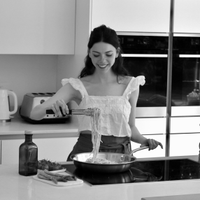
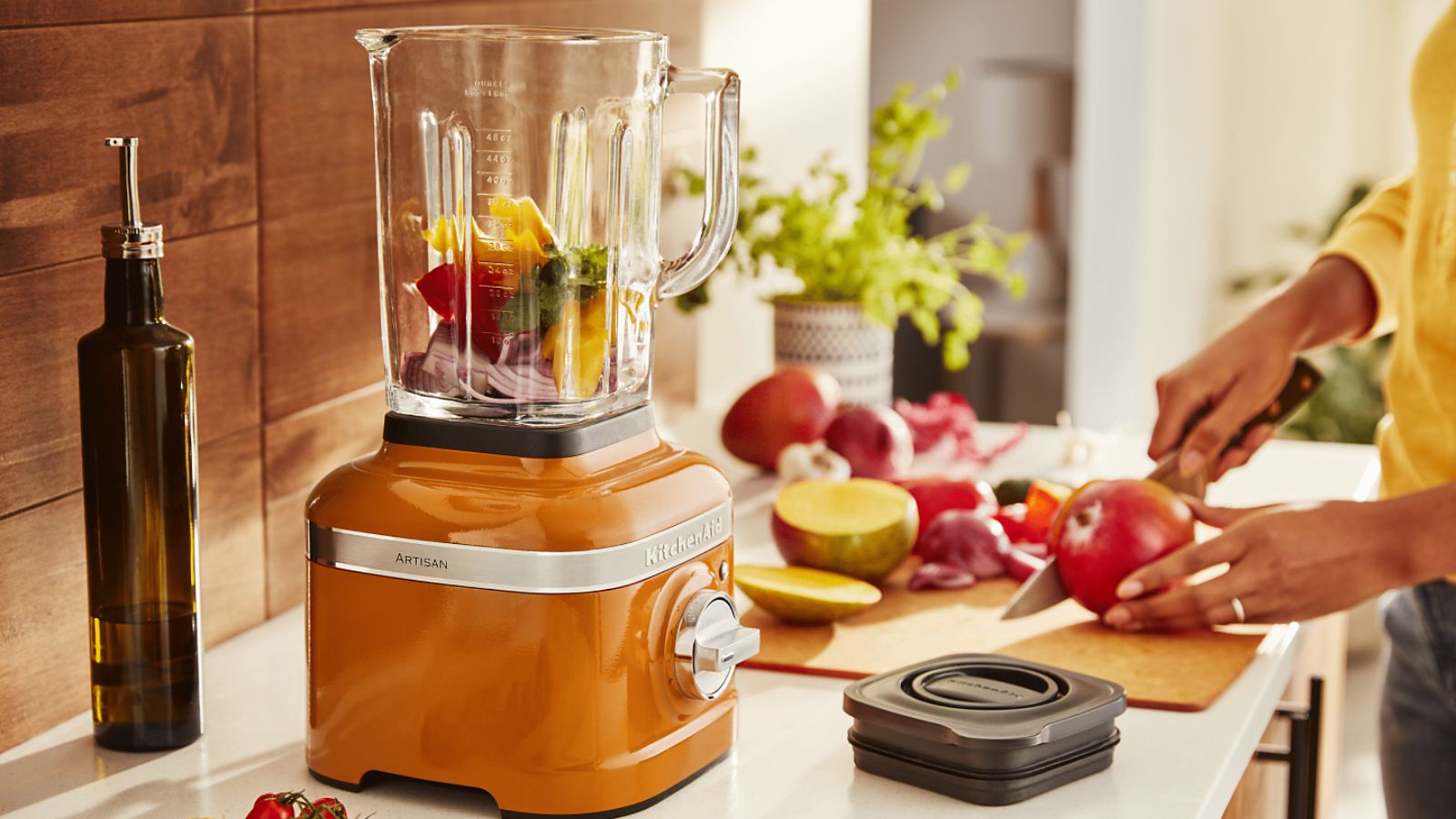
Whether you’ve just unboxed a brand-new blender or you’ve had one for years and feel stuck in a rut, it is time to discover what this kitchen workhorse can do. There are so many things to make in a blender besides smoothies.
In this guide, I'll explain how to blend the creamiest sauces, vibrant dressings, fluffy pancake batter, and even homemade ice cream, quickly and easily. The best blender can do a whole lot more than deliver a healthy, fruity drink.
And don’t worry if counter space is tight. Both immersion blenders and smaller, personal blenders can be versatile, too. To help you get the most out of your blender, I've pulled together some fun recipe ideas – with my chef tips on how to get the smoothest results every time.
12 Things to make in a blender
Creating healthy, vibrant smoothies is a brilliant way to use your blender, but a blender can also make savory and sweet treats. Take a look at some of the (sometimes surprising) things to make in a blender.
1. Fresh pesto
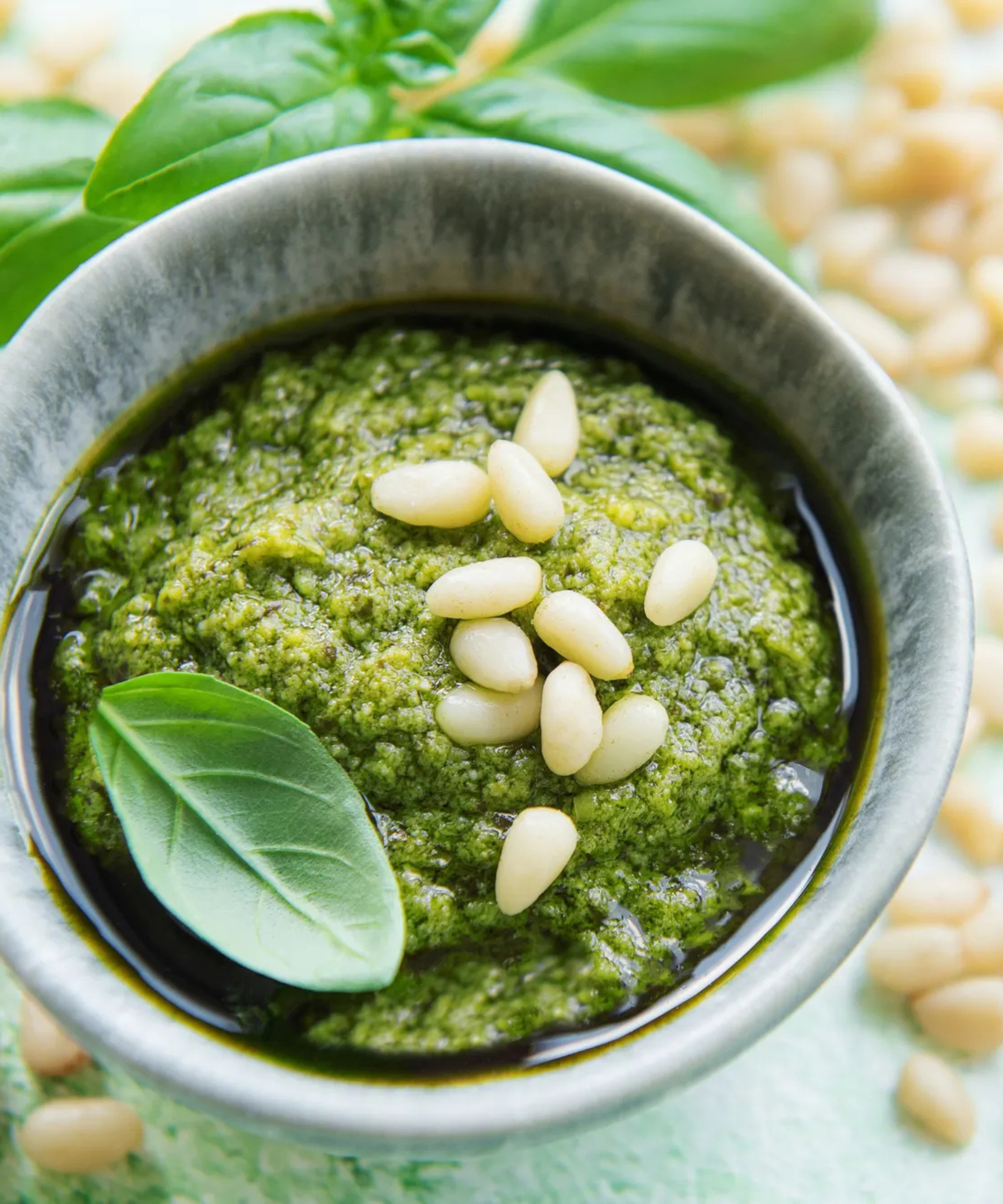
You can, of course, make pesto in one of the best food processors, but as much bigger machines than blenders, they’re often stowed away rather than out on your countertop. Blenders are far more likely to be close-to-hand, plugged in, and ready-to-go. Arguably, cleaning a blender is also a whole lot easier.
Featuring soft and liquid ingredients, pesto doesn’t need a particularly powerful blender to produce fabulous results. To make a fresh pesto, simply add all the ingredients in step one to your blender, starting with plenty of olive oil to get things moving, then the garlic, herbs (roughly chopped), and pine nuts. Use the pulse button a few times to get things going, then blend to your preferred consistency.
This is my go-to for making a quick lunch. I combine it with spaghetti or tinned butterbeans, which I always have in the pantry, and food is on the table in no time at all.
Design expertise in your inbox – from inspiring decorating ideas and beautiful celebrity homes to practical gardening advice and shopping round-ups.
2. Homemade soups
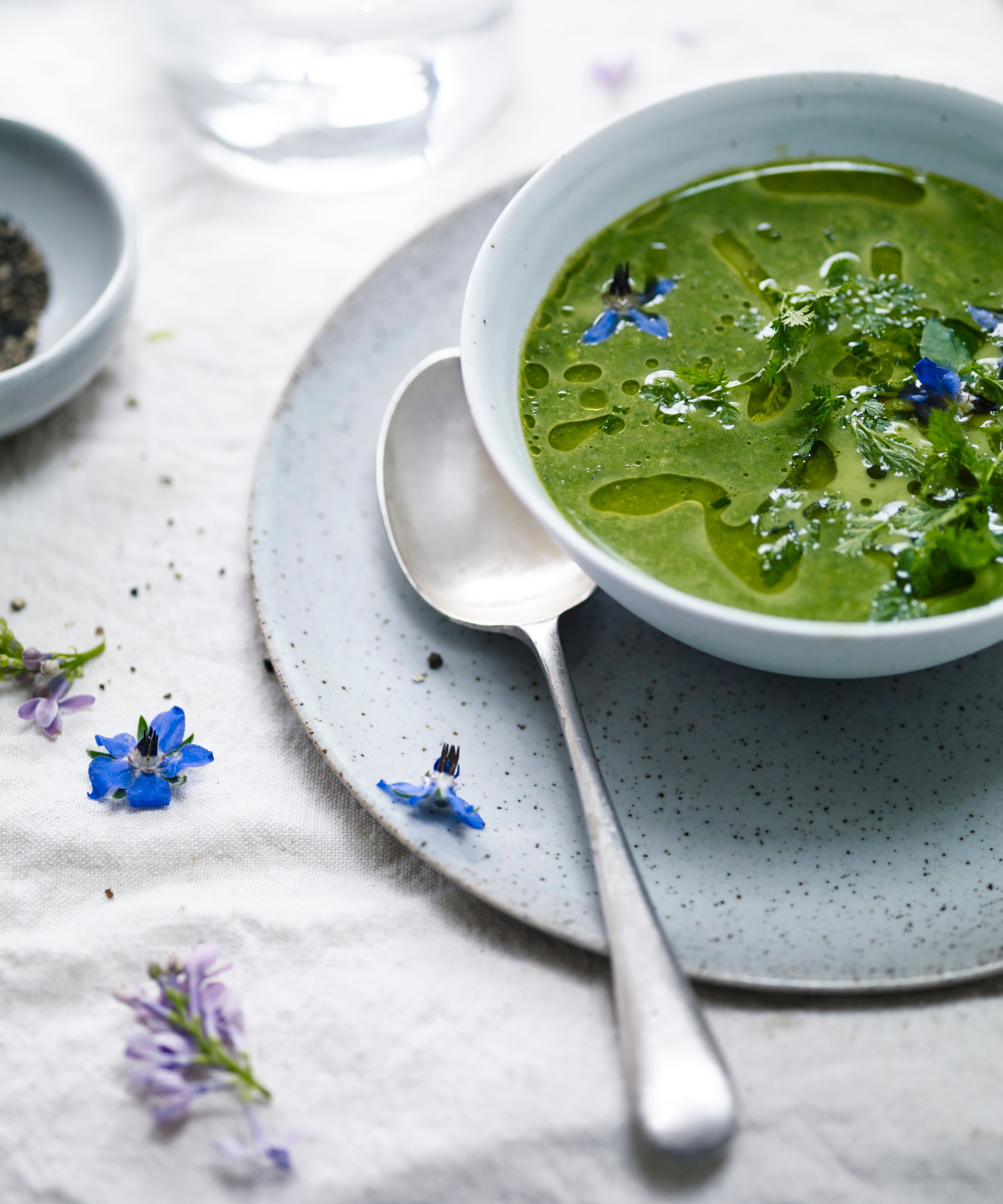
An immersion or hand blender that goes directly into the saucepan will reduce washing up, but even if you only have a jug blender, soup is absolutely doable.
The key is to allow the hot ingredients to cool before blending; most blenders are not designed to work with boiling hot liquids (check your blender manufacturer's guidelines first). Sometimes, I pop in a couple of ice cubes before decanting from saucepan to blender to speed things up a bit.
3. Cocktails & slushies
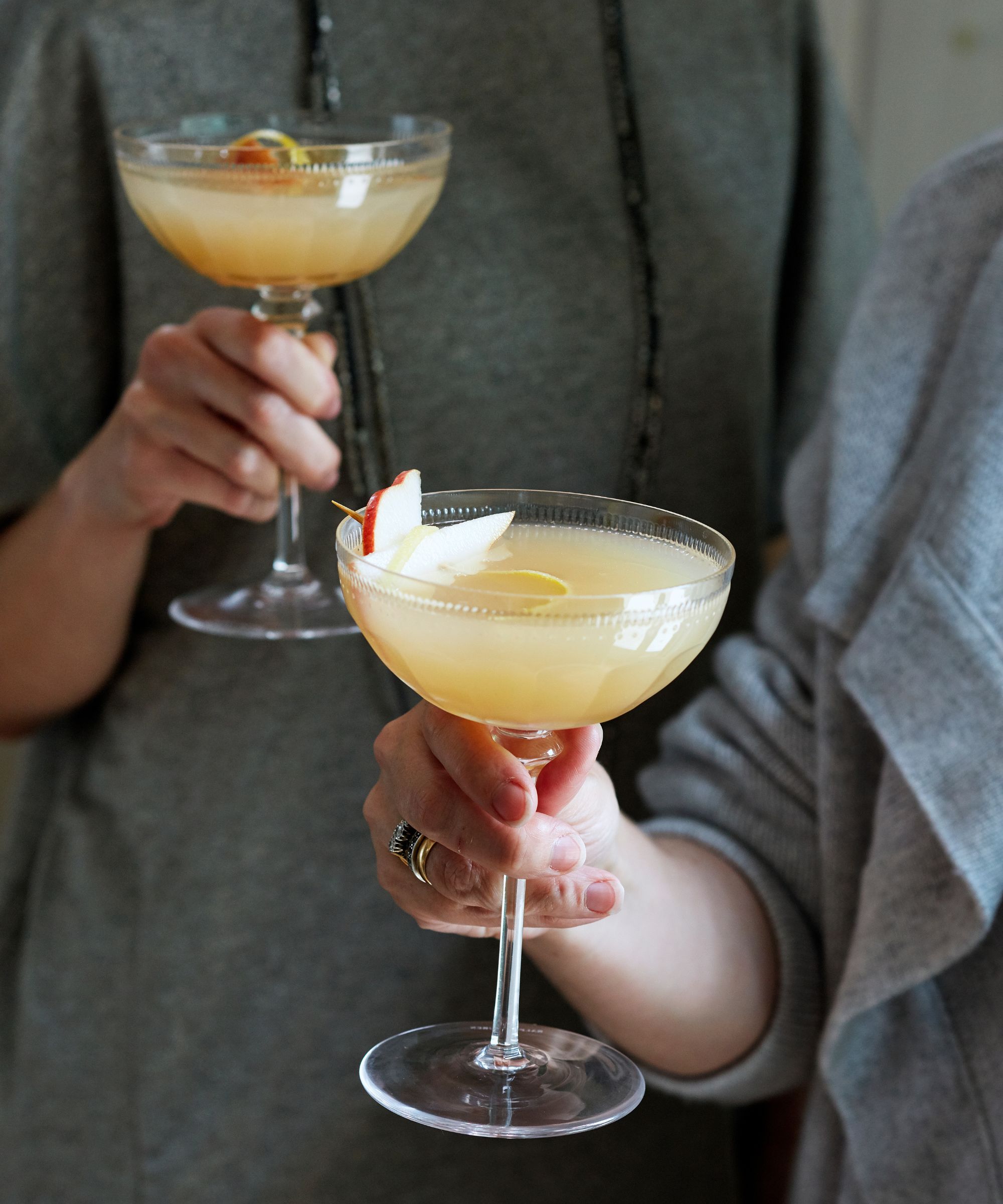
You don’t need bar skills to shake up some dinner party-worthy blends. Cocktail recipes that feature crushed ice, like daiquiris, margaritas, and mojitos, are perfect thirst-quenchers in the summer months.
You can also make slushies in a blender, like kids love at the mall or movie theater, by adding slushie mix like this at Walmart or low-sugar frozen fruit.
Always check the manual first. If your blender can't handle pure ice cubes, just add one cup of water (aim to cover about half of the ice), to give the blades the purchase needed to get the process going safely and smoothly.
Use the pulse button a few times to get things moving, then switch to the lowest setting for one or two minutes. Once you’re done blending, sieve the ice to remove some of the slushiness and pick out any lumps that didn’t quite reach the blade, before adding your favorite beverage.
4. Pizza sauce
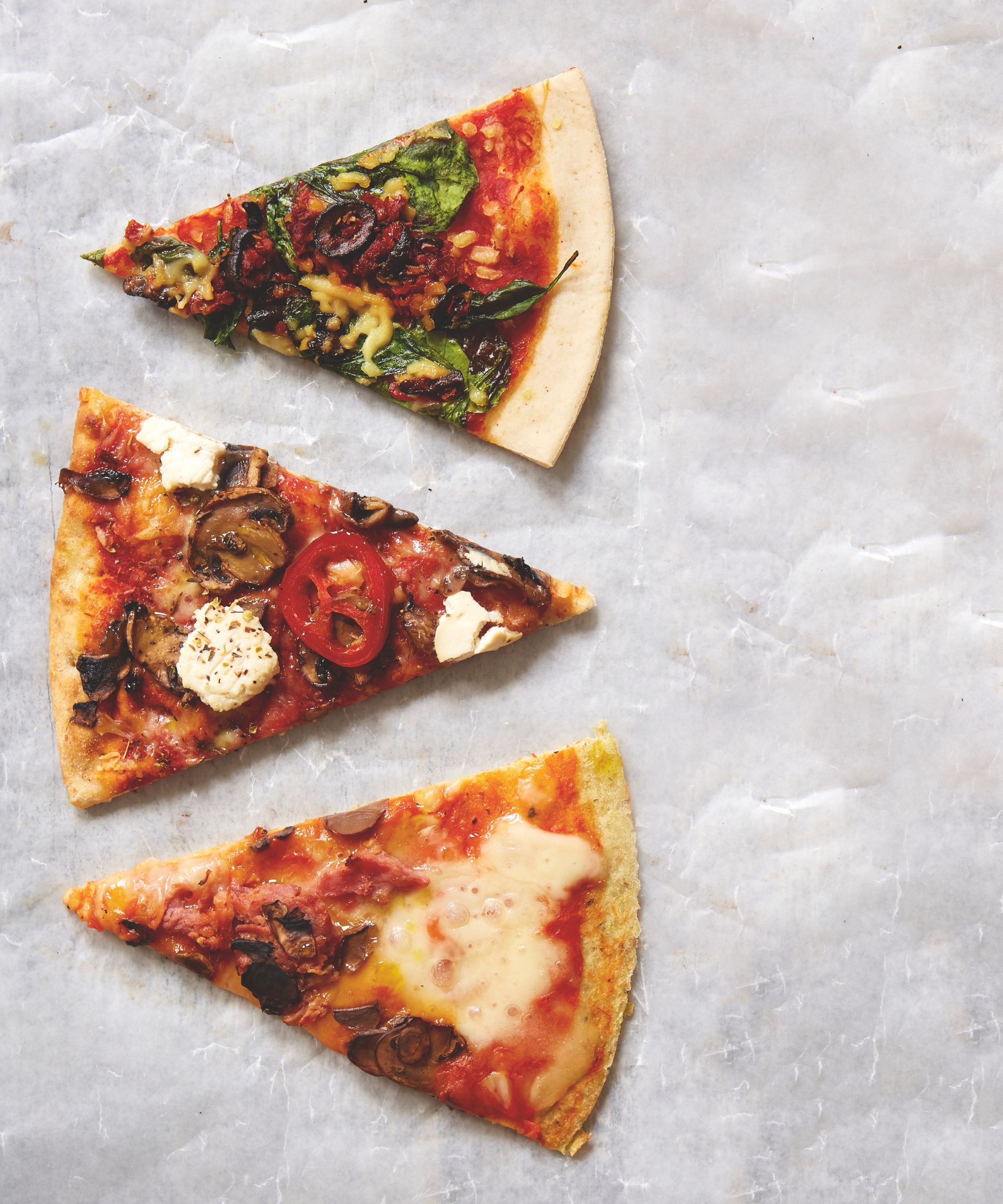
Use your blender to make a quick tomato sauce smooth base for pizza recipes. This is also a good way to sneak in a few ‘hidden veg’ like chopped onions and cooked carrots to boost your family’s five-a-day without alerting fussy eaters. And you can freeze any leftovers to get out when you need it. It'll double as an easy pasta sauce too, for busy weeknight dinners.
5. Pancake batter
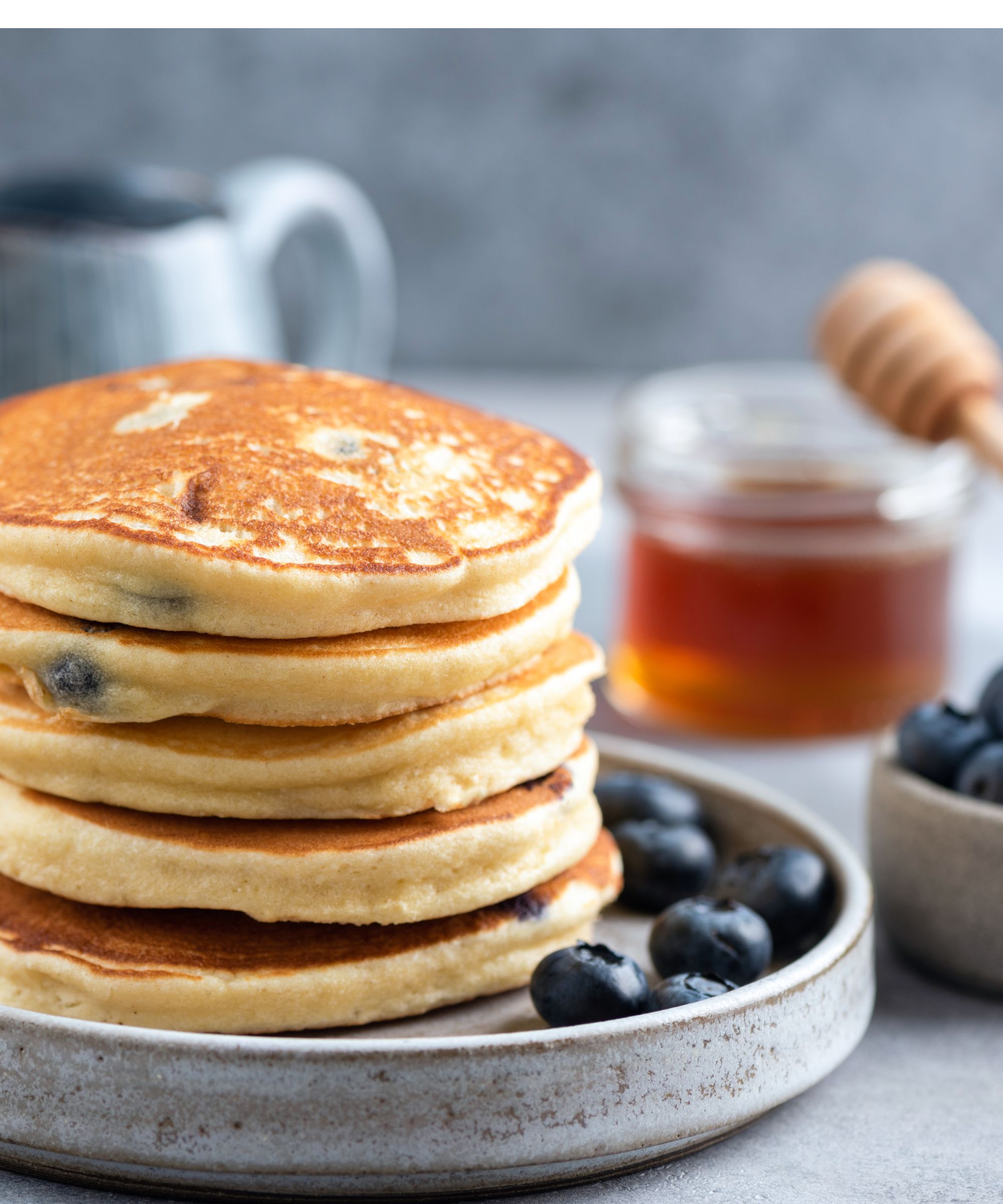
A simple and quick way to ensure silky smooth, lump-free pancake batter is to harness the help of your blender. You can use either an immersion blender (I use the Dualit Hand blender and blending cup) or a jug blender to ensure perfectly combined liquids.
Just make sure not to overfill the pitcher past the 'max' line or you could end up with a mess to clear up. You can always do it in two batches to avoid seepage at the lid, if necessary.
6. Muffins
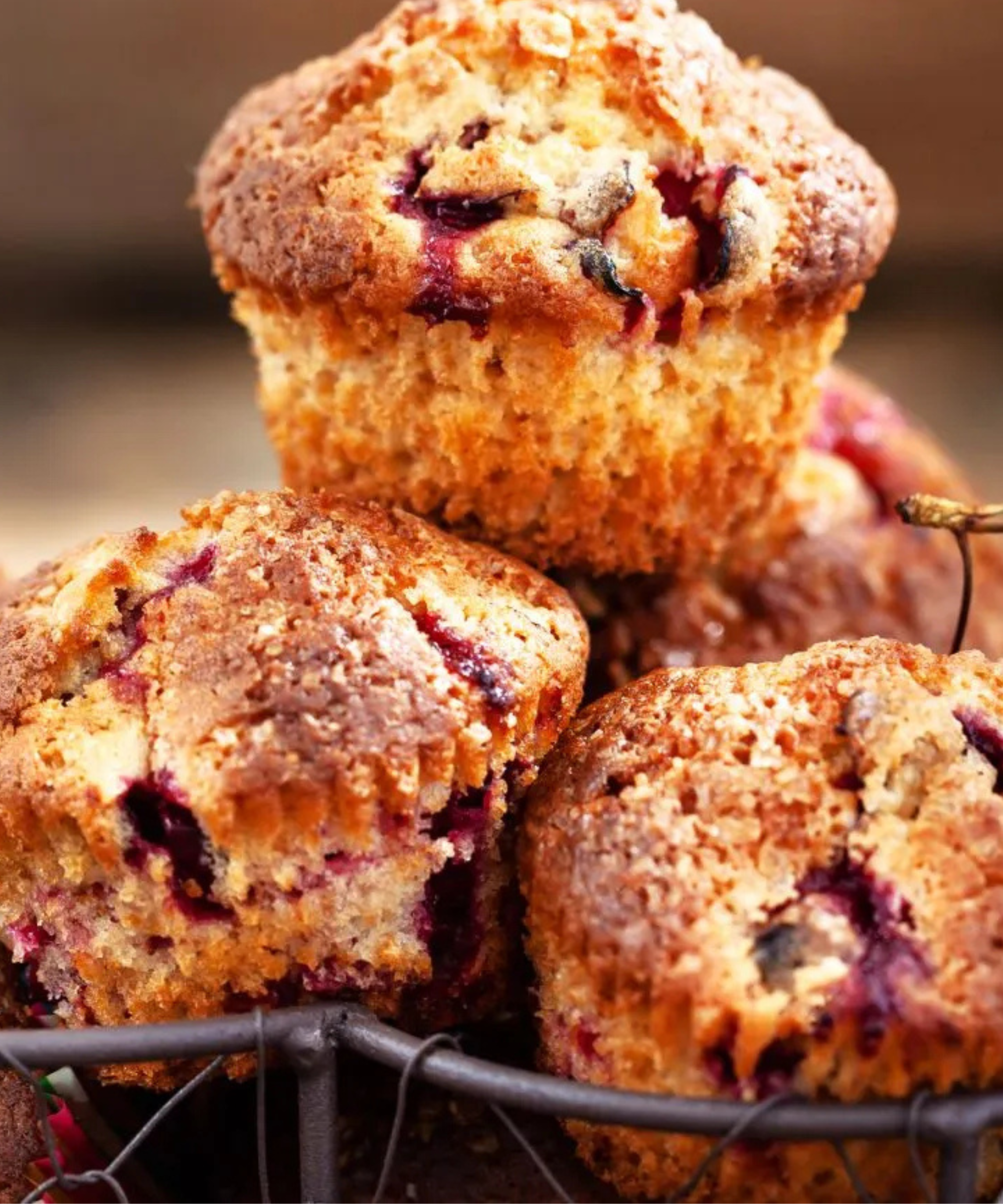
This has been trending a lot on social media, so it's no wonder people often ask me: Can you make muffins in a blender? I have tried it and can tell you: yes, you absolutely can.
A blender won’t bake the muffins for you, of course, but it will whip up a thick, cohesive batter that’s ready to pour straight into your muffin tin.
The biggest risk is overmixing, so blend slowly and keep an eye on the texture through the clear pitcher. I prefer to whisk the wet ingredients – milk, melted butter, eggs, etc – in a separate jug first. Then, I combine the wet and dry ingredients in the blender on low speed until smooth, about 30–60 seconds. The batter should be thick but still pourable, with a few lumps left.
Finally, fold in extras like chocolate chips with a few gentle pulses or a quick stir, then pour the mix into a muffin tin, filling each cup about two-thirds full. With this method, you'll have bakery-style muffins in no time.
7. Speedy ice cream & sorbet
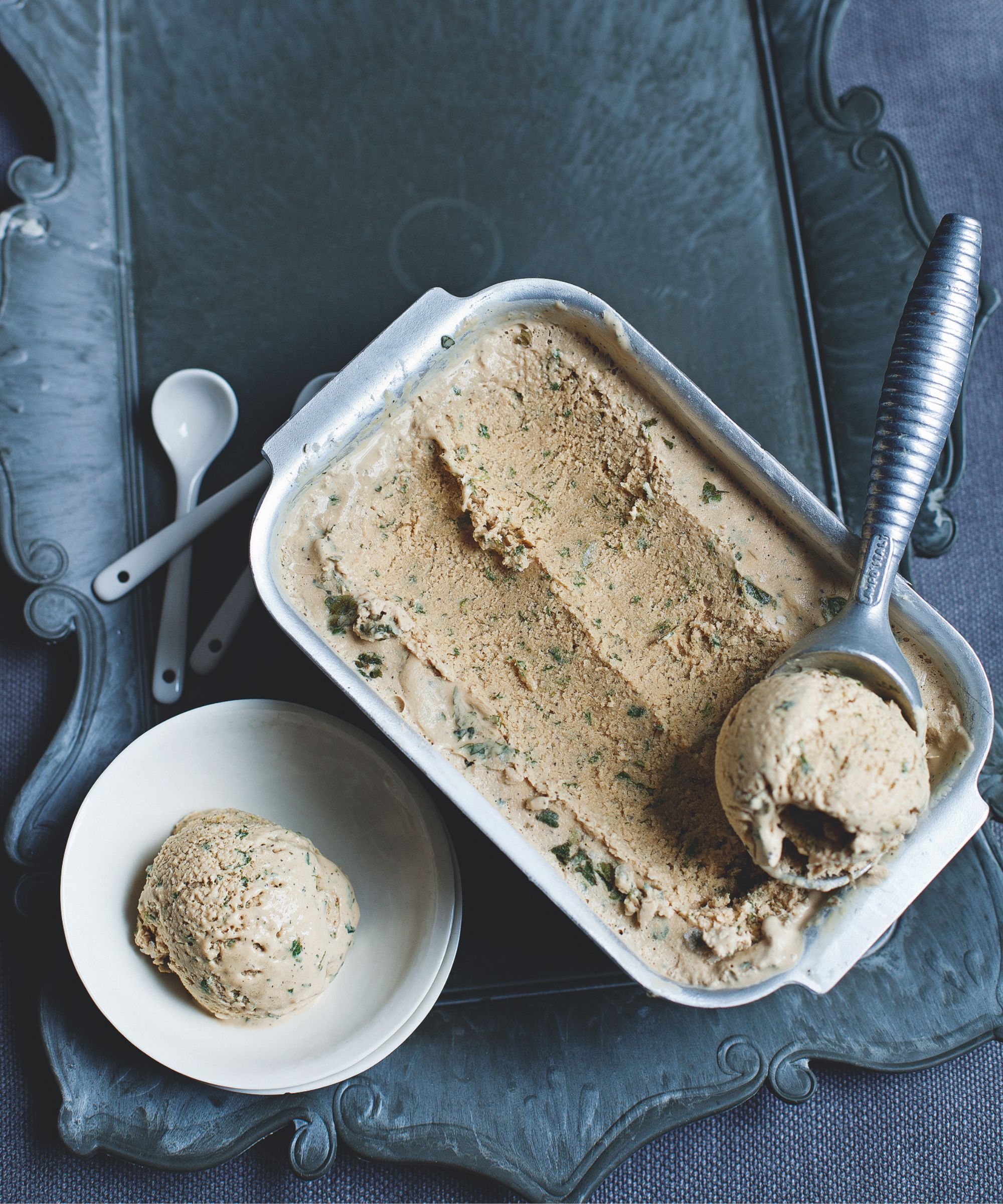
With no laborious custard base or churning required, ice cream recipes made in the blender really couldn’t be easier. All you need is an equal amount of any frozen fruit and double cream, adding sugar to taste.
For example, try 150g frozen raspberries with, 150g double cream (fresh from the fridge) and a tablespoon or two of caster sugar. Blend until smooth and then freeze for an hour or so, if necessary. Use a medium speed and be careful not to blend for too long or the cream can separate, and you’ll end up with butter.
Switch the cream for water or fruit juice to make a sorbet – one of the most refreshing things to make in a blender
8. Salad dressings
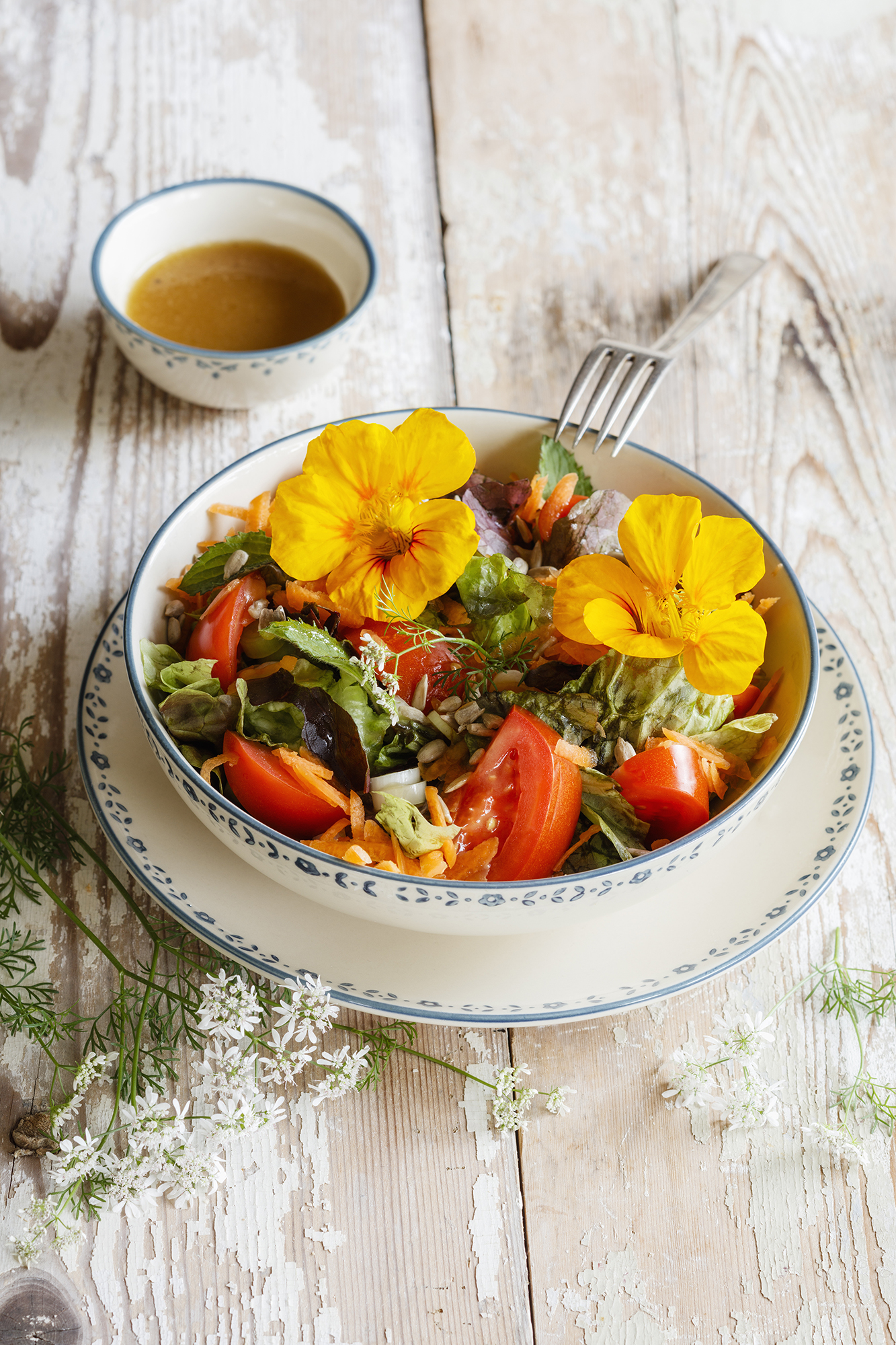
Any salad dressing that’s best served super smooth is the ideal recipe to make in your blender. A quick vinaigrette can be whipped up in about 30 seconds and will taste far fresher on your salad recipes than any shop-bought dressing.
The secret to success is all in the ratios – three parts extra virgin olive oil to one part vinegar (I like cider vinegar, but go for balsamic for more robust flavor). Blitz, season and serve.
If you prefer a little more zing in your vinaigrette, just add a splash of lemon juice or a teaspoon of mustard. More classic blender-friendly dressings include honey and mustard, Caesar-style salad dressing, and classic ranch.
8. Almond milk
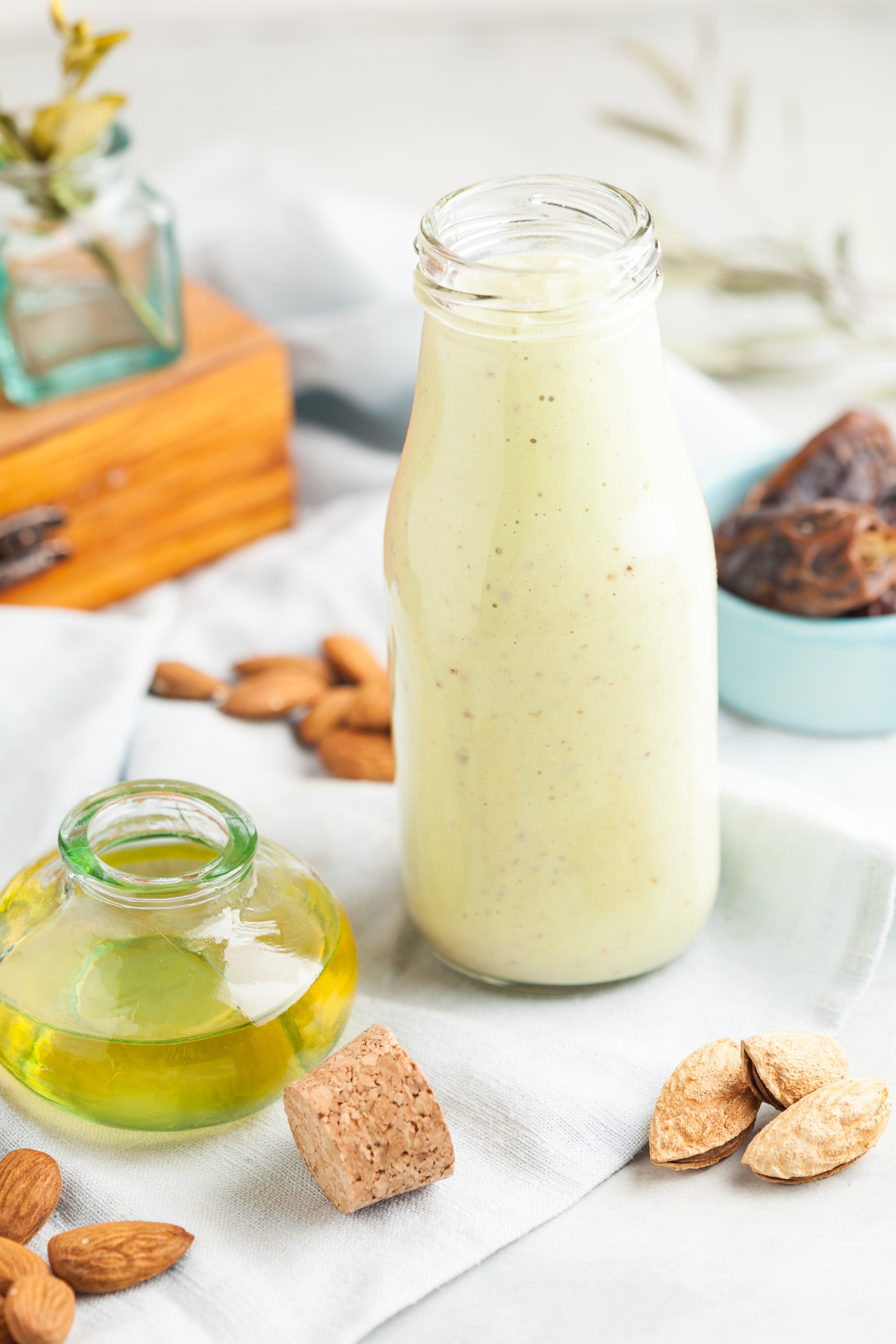
You don’t need to be dairy intolerant to appreciate the velvety creaminess of almond milk, which tastes amazing in your morning coffee, on cereal or just on its own.
Once you’ve tasted homemade almond milk, you’ll never look back. It is quickest in one of the best nut milk makers, but a blender does equally well in terms of silky smoothness. A food processor produces grainier results, which is okay on granola but not so great in tea or coffee.
The process is pretty straightforward: soak raw almonds in water for at least 24 hours (48 hours is preferable), drain and rinse, then pop in the blender, just covered with fresh water. Hit pulse a few times, then ramp up to full power for at least two minutes. Finally, strain the results through a sieve lined with cheesecloth and sweeten the resultant liquid with honey or maple syrup, if desired. Store in the fridge for up to three days.
9. Breadcrumbs
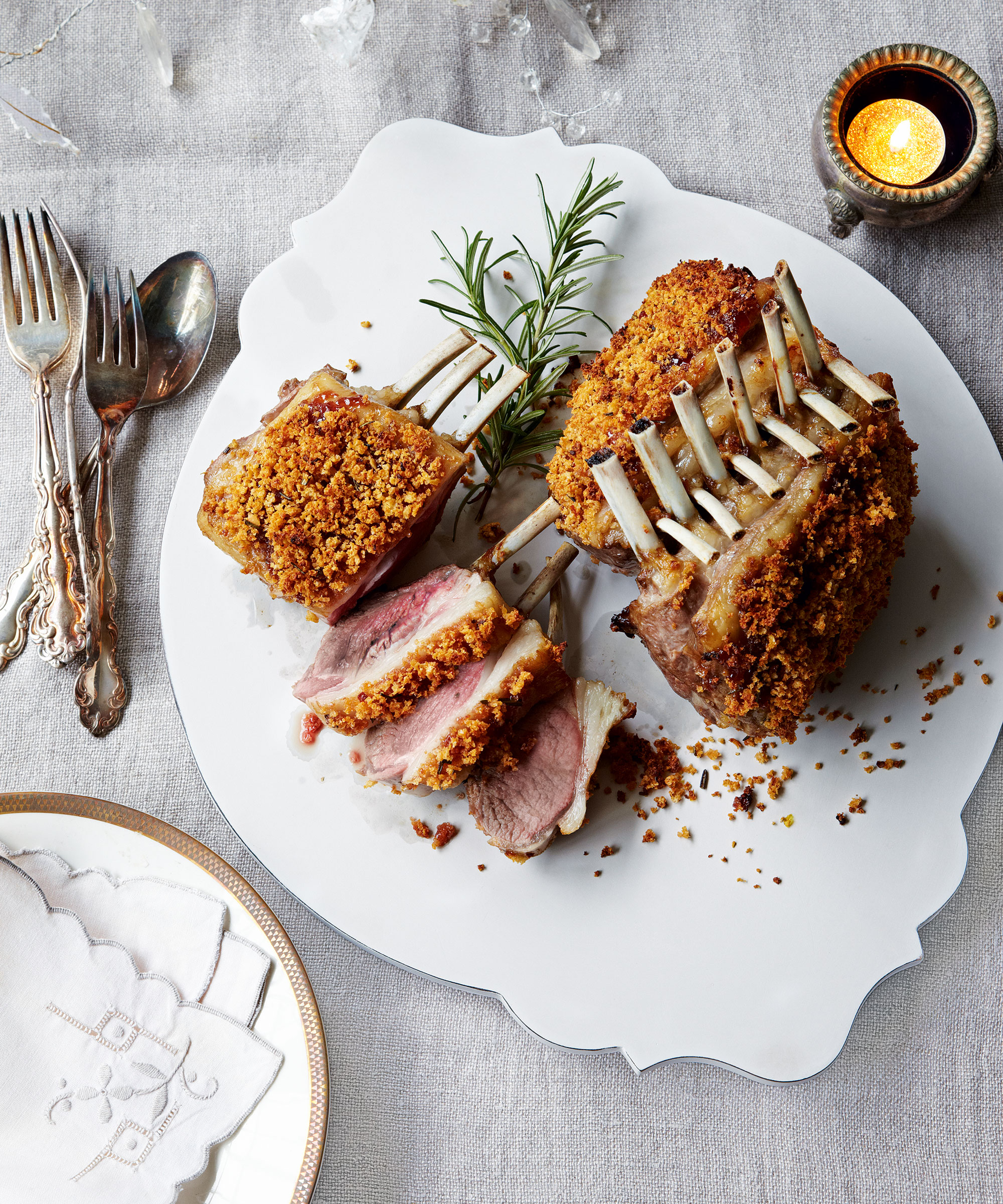
Breadcrumbs are one of my favorite things to make in a blender. If you’ve been throwing out bread that’s gone dry up to now, and you own a blender, you’re missing a trick.
A blender is ideal for making breadcrumbs that can be used to top mac and cheese, for fish and other seafood, in gratins, and to bread cutlets of chicken, for example. Cut the bread into chunks, add to the blender and pulse until it reaches the consistency you require.
To boost flavor, add spices or herbs to the mix when you blend to complement the dish in which the breadcrumbs are going to be used.
10. Juices (with caution)
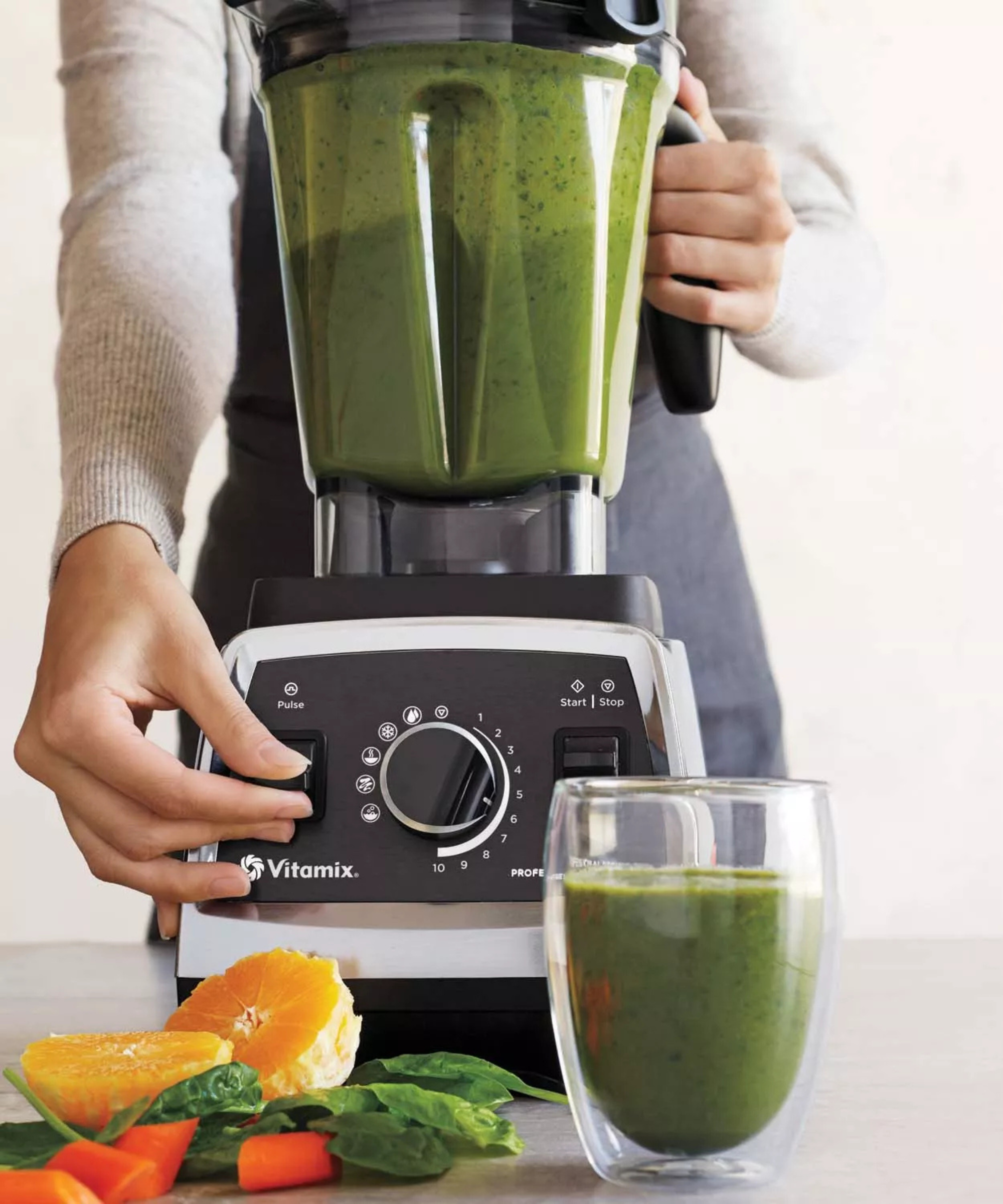
Can you make juice in a blender? In an ideal world, when you want juice, you walk to your countertop, where your exceptionally good juicer will be sitting. The best juicers on the market will undeniably make crisper, clearer juice than a blender ever can. However, if you're in a pinch, a high-speed blender will do the job.
You'll need to wash, peel, and dice the fruits and vegetables you want to juice, then blend them with some water (or coconut water) until smooth. More powerful blenders will do a better job of this. The Braun Triforce and Vitamix Ascent Series are up to the task, but portable blenders will struggle.
It should only take a few minutes to reach a smooth, frothy consistency. Once it looks like a smoothie, you can either drink it as it is, although this will be quite pulpy and thick. If you want a cleaner, crisper drink, you'll need to strain it through a cloth strainer or fine mesh sieve to take out the pulp. Juicers do this bit for you, often using high speeds and clever mechanisms, which is why the juice will taste smoother and less pulpy.
11. Fresh salsa and dips
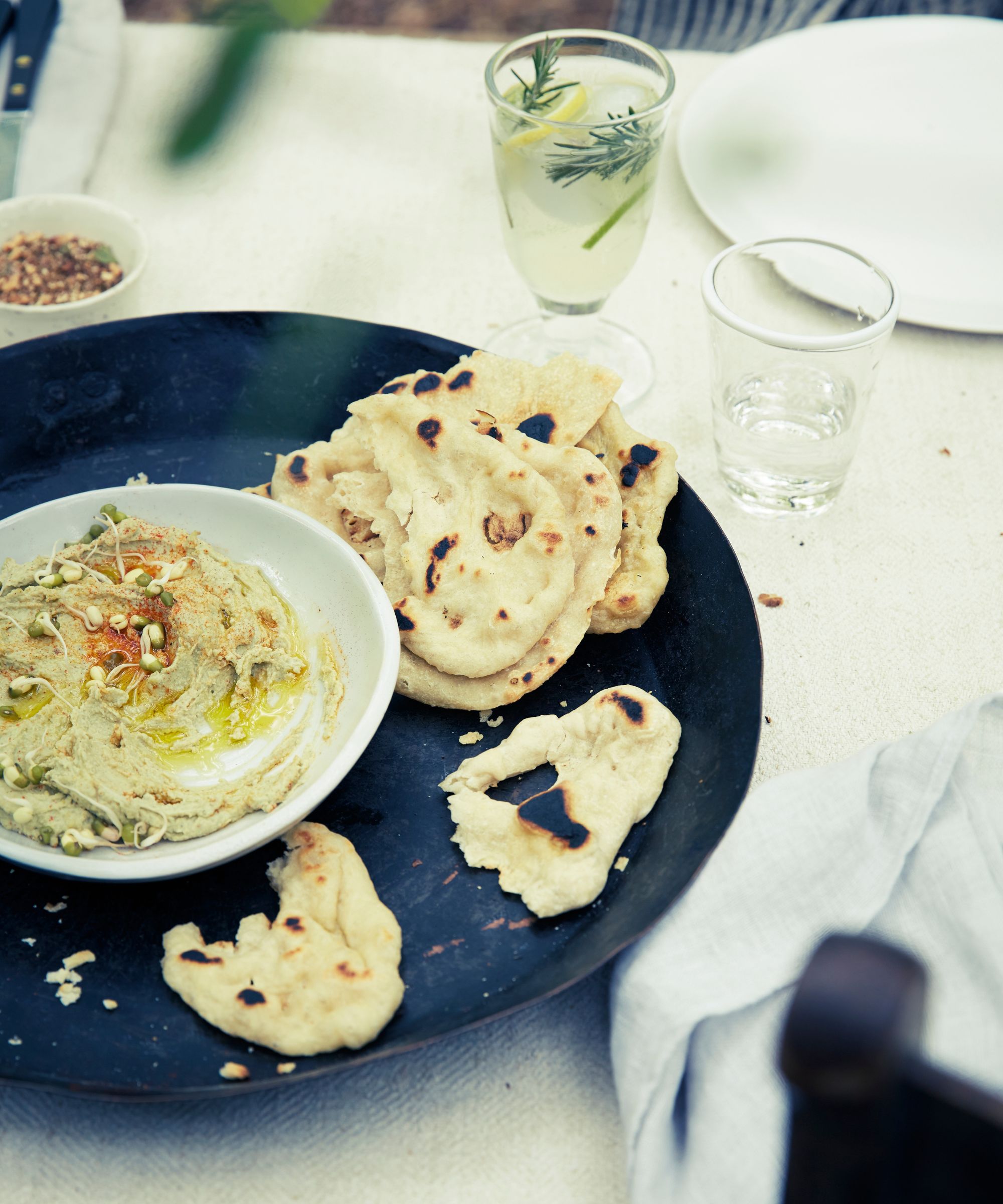
Chips and dips are a classic combo, and your blender is a trusty friend when it comes to prepping them at home. For chunkier dips like guacamole or salsa, be careful not to over-blend – use short pulses to keep some texture. Overdoing it can turn guac into paste or salsa into soup, so go slow and taste as you go.
Smooth dips like hummus or baba ganoush for vegetarian mezze recipes can also be made in a blender, but you’ll need to add enough liquid (like lemon juice, olive oil, or water) to help everything blend properly. In my experience, a food processor handles these better, but if a blender is what you have, it’ll do the job.
12. Milkshakes
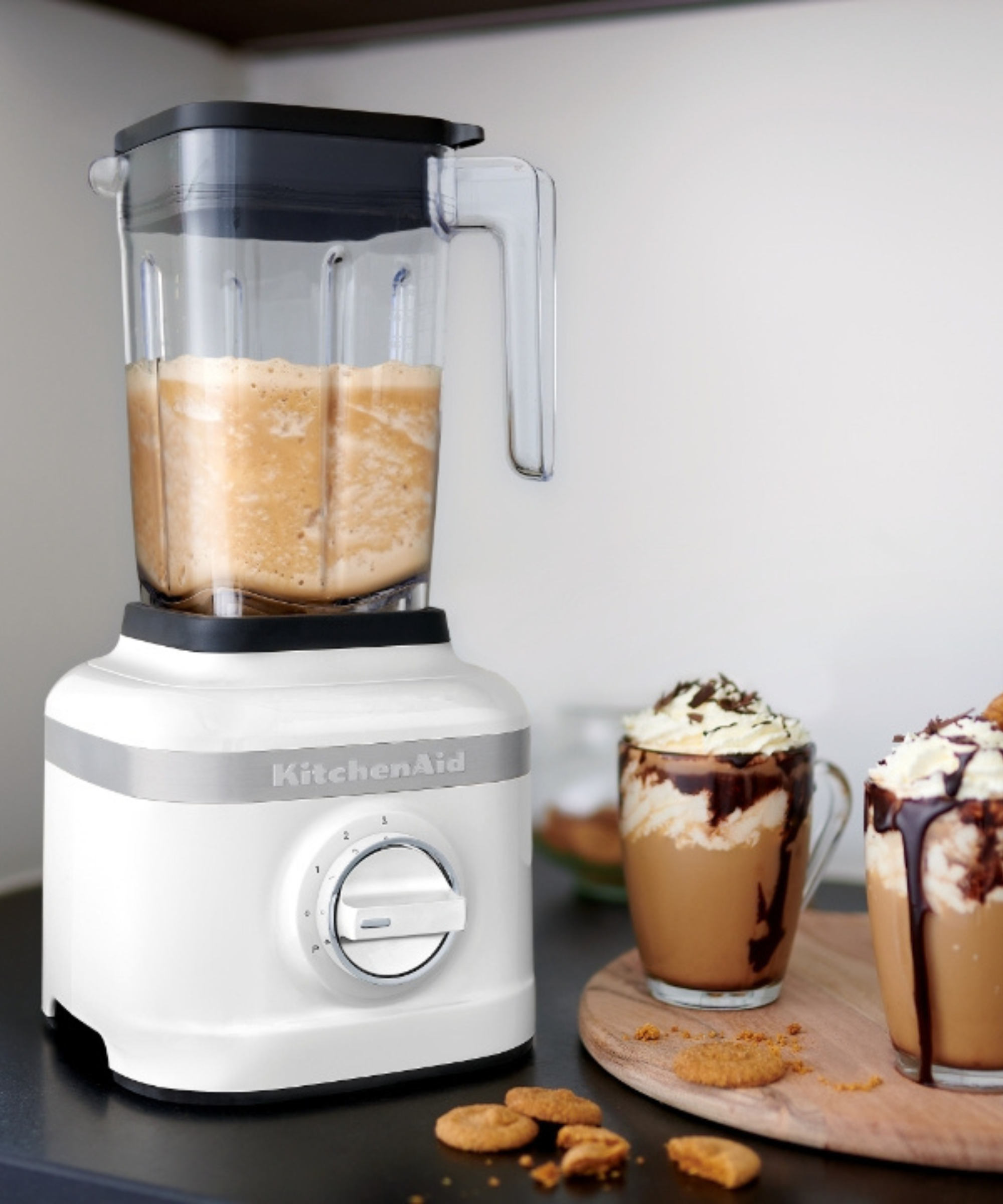
If you're craving the taste of a retro diner, you can easily make a milkshake in a blender. Smoothies are usually made with yogurt or milk, while milkshakes are made with indulgent cream or ice cream, making them a gorgeous treat.
Start by bringing the ice cream out of the freezer about 10 minutes before you start to blend for best results. As you do so, put your milkshake glasses in, so that they are chilled when you're ready to serve.
Add milk and ice cream to your blender. Blend on until smooth and creamy. For a thicker shake, add more ice cream; for a thinner one, add more milk.
Immediately pour into the milkshake glasses – this set of four milkshake glasses from Amazon is the best we've found. Top with whipped cream, a cherry, or sprinkles for the classic retro look.
My favorite blenders, tried and tested
As a kitchen editor, I've tested over fifty blenders in my career so far. These are three of the best models on the market. If you need help choosing, I've written a full guide on how to choose the best blender.
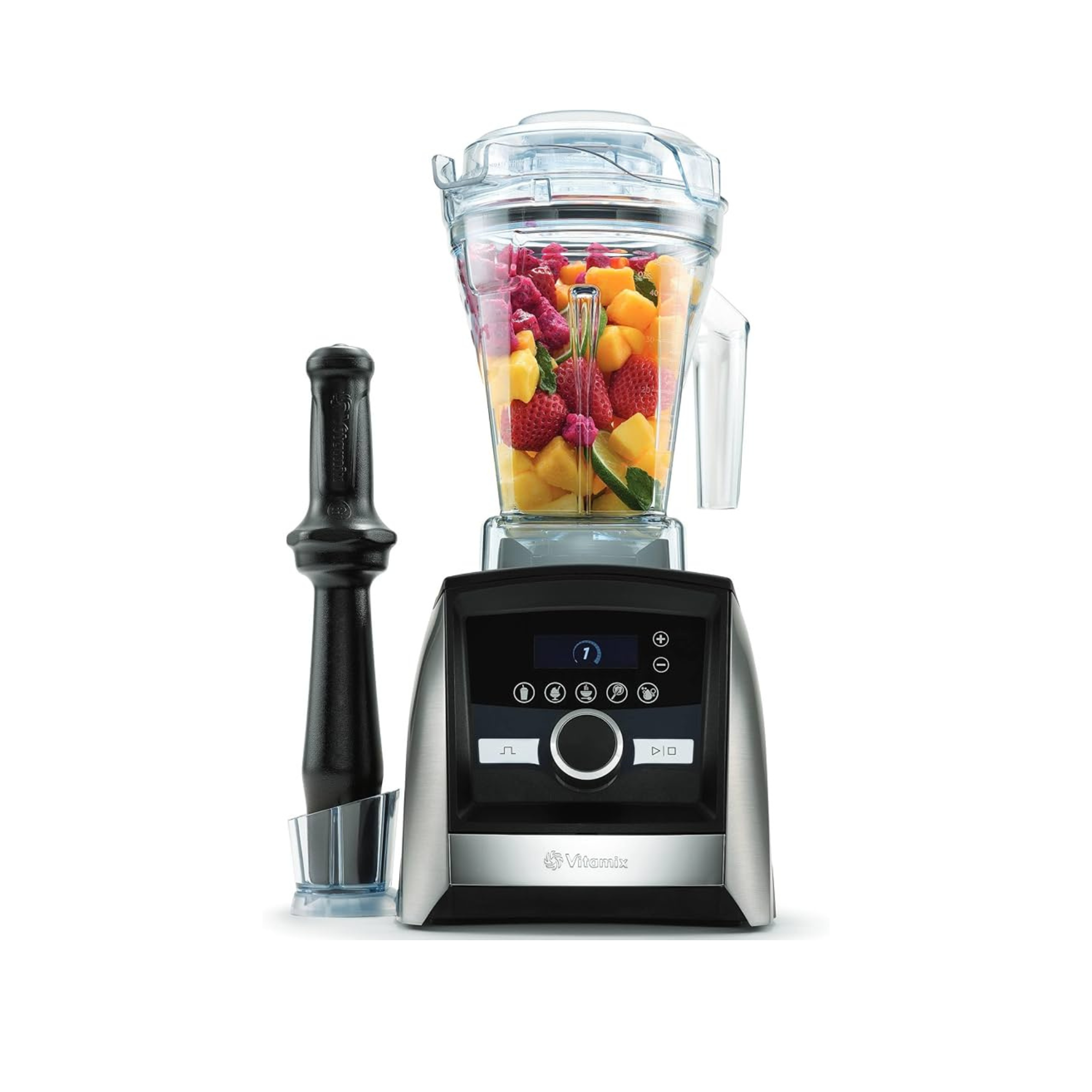
Put simply, this is the best blender money can buy. It makes perfect smoothies, hot soup, crushed ice, and nut butters, excelling in all our tests. It's beautiful and universally beloved. It comes with a hefty price tag, but we think it's worth every penny.
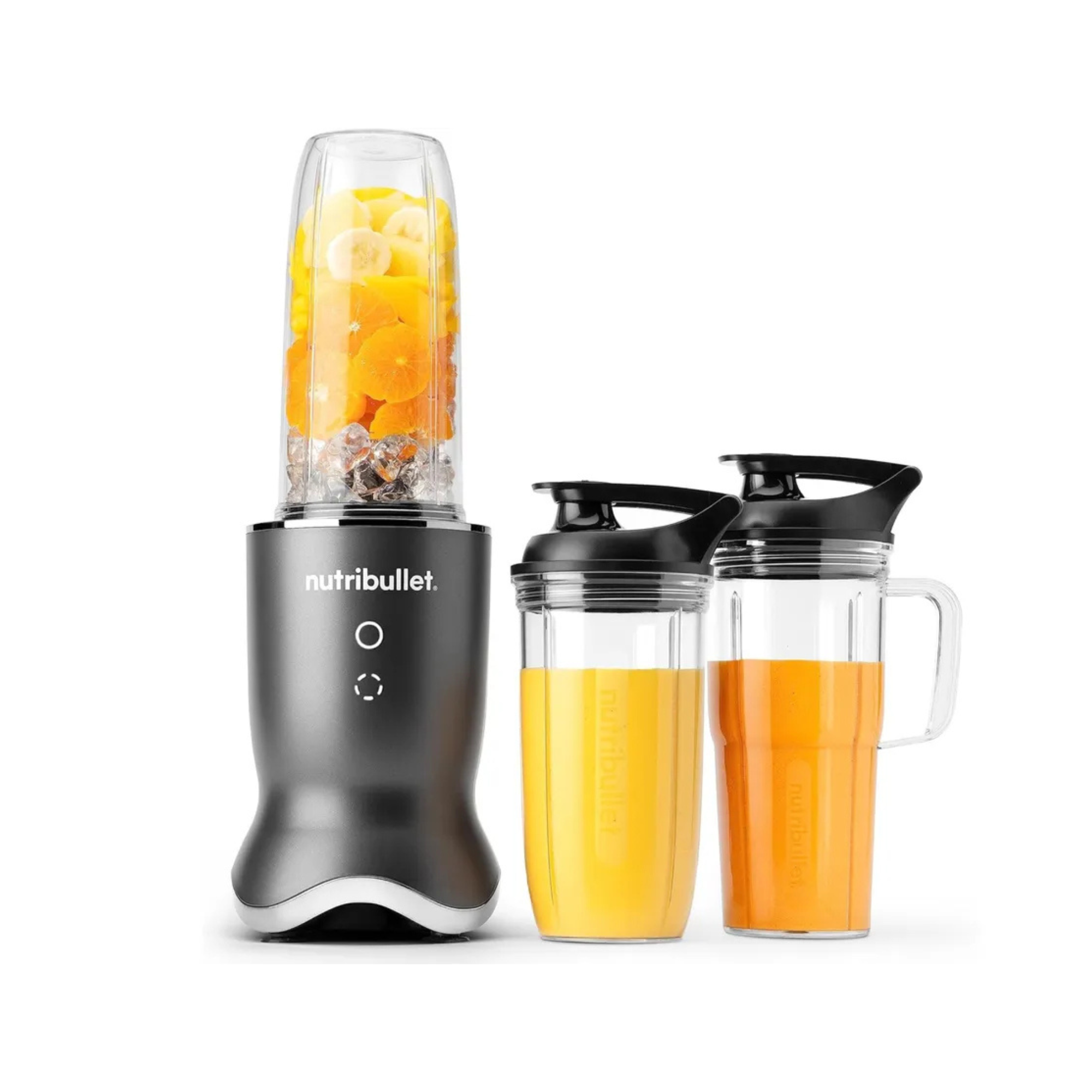
This is the best personal blender by far. The Ultra can whip frozen bananas, kale, and seeds into silky-smooth drinks in seconds – and it can even crush ice and blend hummus. It's modern and powerful, and not too expensive compared to competitors.
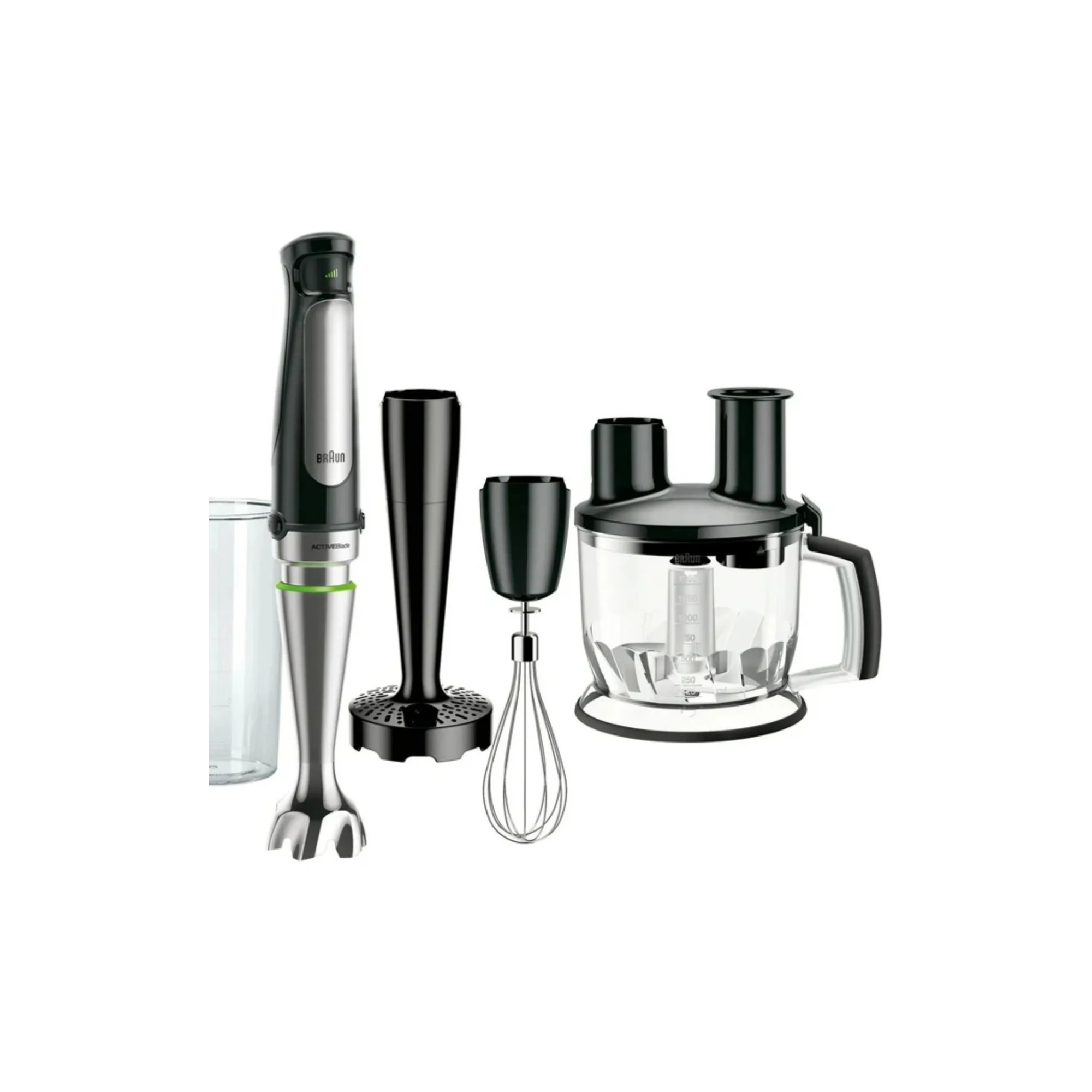
An unsurprisingly excellent option, Braun's blender is good value for money for the versatility and power it brings to the kitchen. It can blend velvety soups on the stove with precision. It also features attachments for whisking, mashing, and dicing.
FAQS
What can an immersion blender make – and should I buy one?
Wondering what an immersion blender is and what you can make with one? There is a whole lot more you can do with one of these stick blenders than you first thought.
An immersion blender is best for making soup, purees and baby food, as you can use it in the pan on the stovetop, avoiding the need to transfer hot ingredients to a blender container.
However, an immersion blender can also make smoothies and dips if you use a separate pitcher. If you invest in a model that comes with attachments, you may be able to whip cream, dice vegetables, mash potatoes, and more. For example, the Braun MultiQuick 9 Hand Blender MQ9199XL, which we awarded five stars in our review, has an ice crush knife among its attachments – a rare feature for most models.
An immersion blender is better for those simple, quick mix jobs or single serves. If you have the space and budget, I'd advise getting a countertop blender for the big tasks, too.
What can you blend in a portable blender?
Portable blenders might be compact, but the most recent launches are very capable machines – perfect for whipping up single-serve smoothies, protein shakes, salad dressings or even dips when space is tight.
The Ninja Blast Max can even crush ice for frappuccinos and slushies, but this isn't a common feature. For heavier jobs like this, or larger capacity needs (like making muffins in a blender) you'll want a countertop or immersion blender instead.
What are the foods you shouldn't put in a blender?
Not using the blender in the intended way will mean you can’t rely on the warranty if damage occurs. Always look at a blender’s features before buying, or in the manual if you already own a blender, to be sure your model is up to a particular task, like dealing with ice or frozen fruits, for example.
To get the very best from your blender and keep it powering on for years to come, I've listed the foods you shouldn’t put in a blender and those you need to be cautious about blending.
- Boiling liquids give off steam, which can cause pressure to build up inside the blender, ultimately leading to a lid explosion and, potentially, serious burns. In most machines, the maximum recommended temperature of liquid foods that can be blended safely is 176ºF (80°C), but do consult the manual.
- Too much food will overload the blender, so it fails. Each blender will specify a maximum capacity, but, as a general rule, avoid filling the jug above the measurement markings on the side.
- Large, whole foods like apples, pears, celery and onions need to be chopped into smaller 1-inch (2.5 cm) pieces before blending to avoid damaging the blender blades and achieve an even, smooth consistency.
- Potatoes are another no-no. You might expect smooth results, but the blades will release too much starch, leaving a gloopy, glue-like mash that sticks to the roof of your mouth. For fluffy potatoes without lumps, a ricer is your best bet, or just stick with a good old-fashioned masher and a little elbow grease.
- Nuts and coffee beans only really work in a powerful blender, like a Vitamix. Anything under 1200W, will give uneven results, potentially ruining a decent pot of coffee and leaving you with nut butters too crunchy to spread. Plus, grinding hard ingredients like these will take a toll on the blades, dulling them down and shortening their lifespan. Reach for the food processor or coffee grinder instead.
- Utensils may be very tempting to poke through the pouring hole to get things moving, but resist at all costs. It’s surprising how quickly a blender can suction contents downwards into its vortex. The safest solution is to turn the blender off, open the lid fully and then use a spoon or tamper to push the blockage down into the mix. Replace the lid, turn it back on, and repeat as many times as necessary.
Can I grind spices in my blender?
You can grind spices in a blender, but bear in mind there is a caveat. As it has a large jar and a large blade, it may take longer to grind spices in a blender than it would to use a mortar and pestle, or a dedicated coffee and spice grinder.
The process will be easier if you have a blender with a grind setting. If not, think medium speed. You’ll need to work in 15 to 30 second bursts, then check consistency and repeat as required.
Should I put liquids in a blender first?
Yes, you should always put liquids (or the softest/moistest ingredients) in the blender first, gradually building to harder foods and finishing with any frozen items.
The order in which you fill the jug will yield a smoother blend. Putting solid, especially hard or frozen ingredients, into your blender first will lead to disappointment.
Pulsing the ingredients once or twice, leaving time between pulses for the harder ingredients to drop down onto the blades, will also produce smoother results.
Is it worth buying a blender?
It is worth buying a blender for most households. Owning a blender makes it easy to prepare fresh ingredients, allowing you to swap shop-bought cans and jars for homemade foods, and to boost your consumption of veggies and fresh fruits.
If your kitchen is small, you could instead opt for an immersion blender, which is a compact handheld appliance. Even a portable blender may well do more than you think, but do check its features as the motor might not be powerful enough for all the tasks you have in mind.
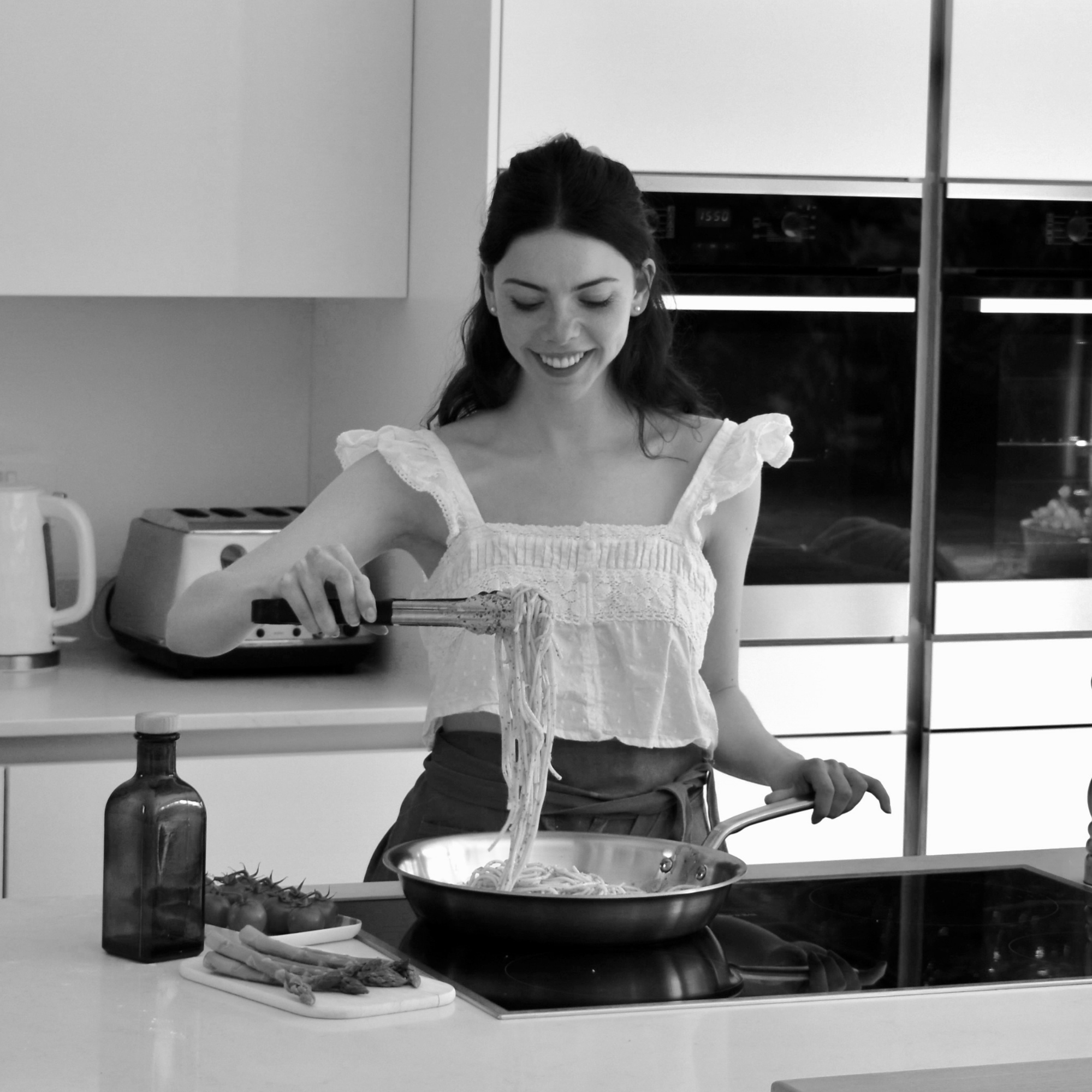
Lydia is the Kitchen Appliances Editor for Homes & Gardens, testing everything from air fryers and mixers to juicers and coffee machines. She trained in Culinary Arts at Leiths School of Food & Wine and previously served as the Recipe Editor for Mindful Chef.